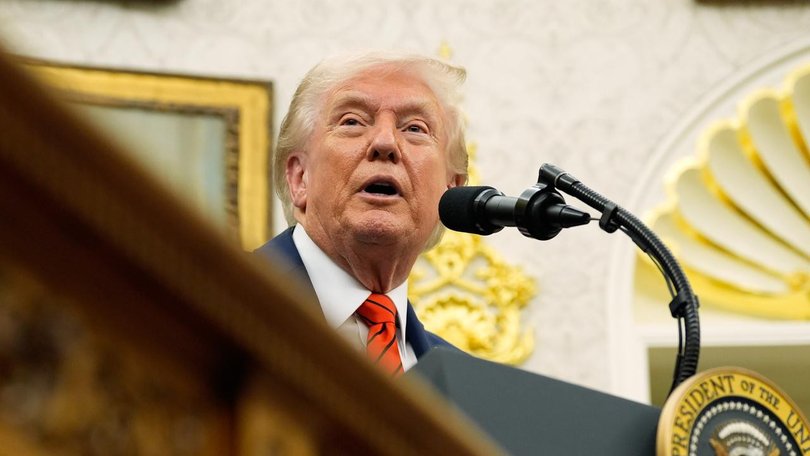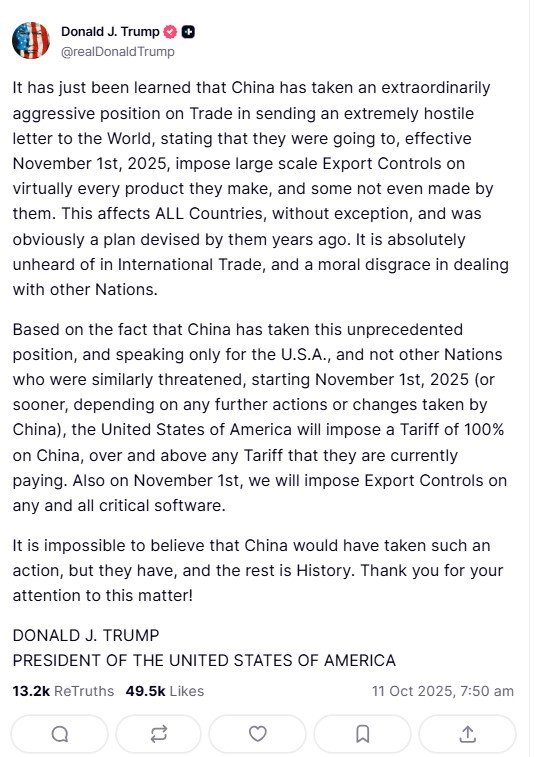Donald Trump softens US-China trade tensions after stock market plunge
US President Donald Trump has taken a less confrontational approach in his latest social media post on trade tensions with China.

After a bout of trade tensions between the United States and China escalated in recent weeks, US President Donald Trump has unexpectedly adopted a more conciliatory tone.
In a post on the Truth Social platform, the US President wrote: “Don’t worry about China, it will all be fine! Highly respected President Xi just had a bad moment. He doesn’t want Depression for his country, and neither do I. The U.S.A. wants to help China, not hurt it!!!”
It remains unclear what prompted Mr Trump to take this softer approach.
Sign up to The Nightly's newsletters.
Get the first look at the digital newspaper, curated daily stories and breaking headlines delivered to your inbox.
By continuing you agree to our Terms and Privacy Policy.Mr Trump may have had an eye toward to US financial markets on the eve of the new business week.
The stock market will be open on Monday although bond markets will close for the Columbus Day holiday.
On Friday, the broad S&P 500 stock market index plunged 2.7 per cent, its worst day in about six months after Mr Trump threatened to impose additional 100 per cent tariffs on Chinese imports along with new controls on critical software by November 1.
He had also questioned whether his planned meeting with Chinese President Xi Jinping in South Korea would take place, citing the ongoing trade conflict.
Mr Trump defended his earlier moves by saying that China had sent “letters to countries all over the world” announcing export restrictions on rare earths and other materials.
He described the move as sudden, warning it could paralyse global trade and harm many countries.

Earlier on Sunday, Chinese officials responded by accusing the US of double standards and threatened countermeasures.
“If the US stubbornly sticks to its course, China will resolutely take corresponding measures to protect its legitimate rights and interests,” the Chinese ministry of commerce said.
China also criticised the US for abusing export controls under the guise of national security, applying discriminatory measures and unilaterally extending jurisdiction over products such as semiconductors and computer chips.
with AP
